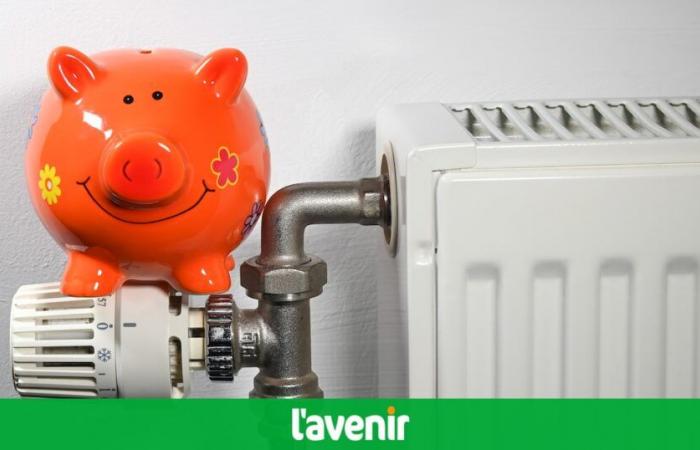
How can we explain that our country is doing well in this way? “Belgium is the most liberalized market, with very little intervention on prices (except on social tariffs) and with retail prices which follow very quickly the evolution of wholesale prices,” explains the CREG. Conversely, in France for example, the regulated price always has a major impact on retail pricing, adds the regulator.
But the “extras” add to the bill
Energy is therefore cheaper in Belgium. But there is a but…
As indicated, we are talking here about a pure “energy component”. Because if we add the other components which form the overall bill, such as VAT, the cost of the network and federal and regional surcharges (energy contribution, connection fee, support for renewable energies, denuclearization fund, etc.) the situation is different.
That said, even if all these “extras” significantly increase the bill, Belgium is not doing so badly compared to other countries.
As we can see (see infographics), even on the basis of the total bill, the price of electricity is only more attractive in France (a little) and in the Netherlands (quite significantly).
And when it comes to gas, only in Great Britain is the overall bill more attractive.
On the other hand, compared to Belgium, the bill for the French, Dutch and Germans is much heavier. Our neighbors in the Netherlands are particularly badly off with more than 1000 euros extra to pay annually for identical gas consumption. A big difference that the CREG explains by the fact that “their own production of natural gas is exhausted and that they have become a natural gas importing country”. But the Dutch government’s energy transition objectives and its desire to reduce the country’s dependence on natural gas have also increased the surcharges, which weigh more than €1,015 per year on the bill. That’s €736 more than in Wallonia for example…
On the other hand, in order to promote electrification (notably heat pumps), the Netherlands applies “negative surcharges” on electricity. This reduces the bill by 141 euros per year.
In Belgium, it is the Flemings who pay the least
If the Belgians are therefore not the worst off compared to their neighbors, within our territory not everyone is in the same boat. For identical consumption, both for gas and electricity, Walloons, Flemings and Brussels residents do not pay the same thing. This is mainly explained by disparities in network costs.
For electricity, for example, the Walloon pays 45 euros more than the Brussels resident and 79 euros more than the Flemish. Surcharges are also lower in the north of the country than in Wallonia (+7 euros) and especially than in Brussels (+44 euros).
Even for the pure energy component, there are disparities between the three regions. Minimal between Flanders and Wallonia (+ 3 euros) but more substantial for Brussels (+ 45 euros).
A disparity that the CREG explains by the methodology used which means that the products selected differ from one region to another, which results in different energy components.
You add VAT, you shake it all up and compared to the Flemish consumer, the Walloon will pay 8.7% more for their electricity and the Brussels resident almost 12% more.
For the same reasons, the gas bill is 2.9% higher in Wallonia than in Flanders and 5.5% higher in Brussels.
Let us point out, however, that this comparison carried out by the CREG is an average indicator which does not fully reflect the reality of a very dynamic energy market with sometimes very different national specificities. The CREG also specifies that “the prices indicated are based on the price formulas and price sheets as published by the suppliers on their website for the months concerned and do not take into account reductions”. And only the products of three suppliers (if any) are considered in the analysis: the incumbent supplier, the largest competitor, and the second largest competitor.





